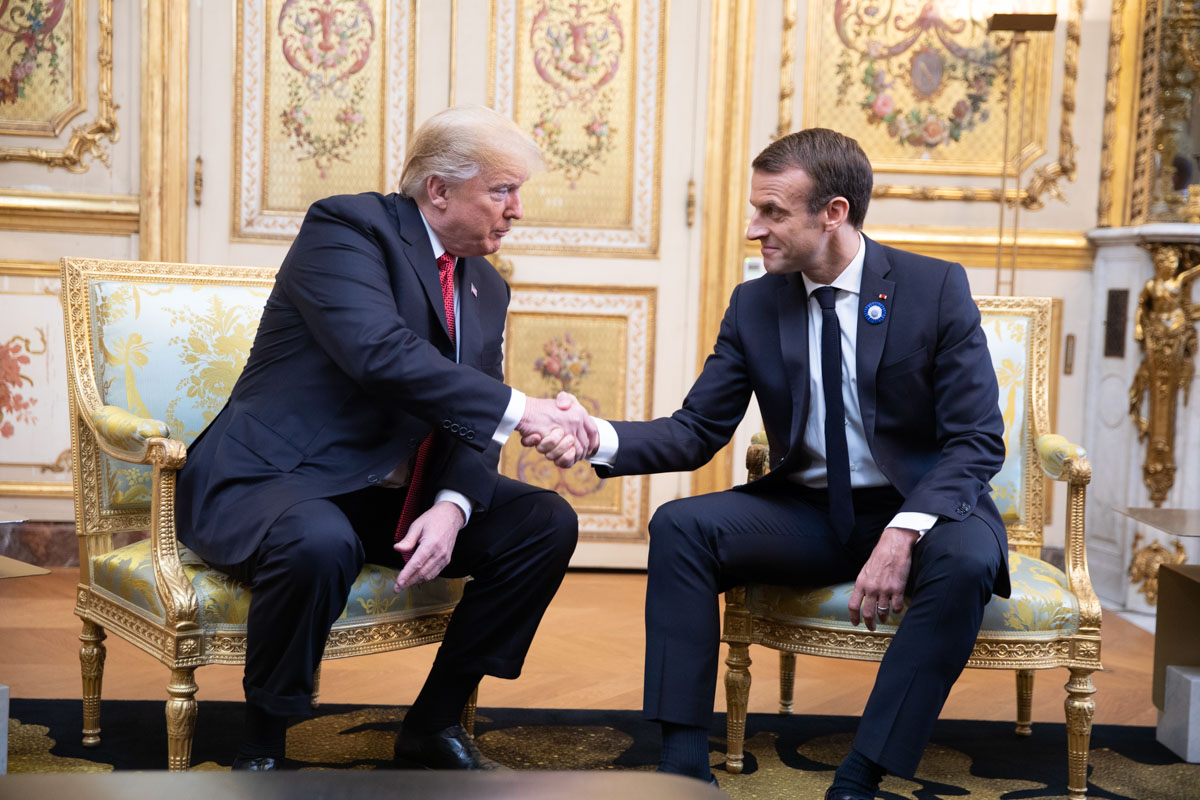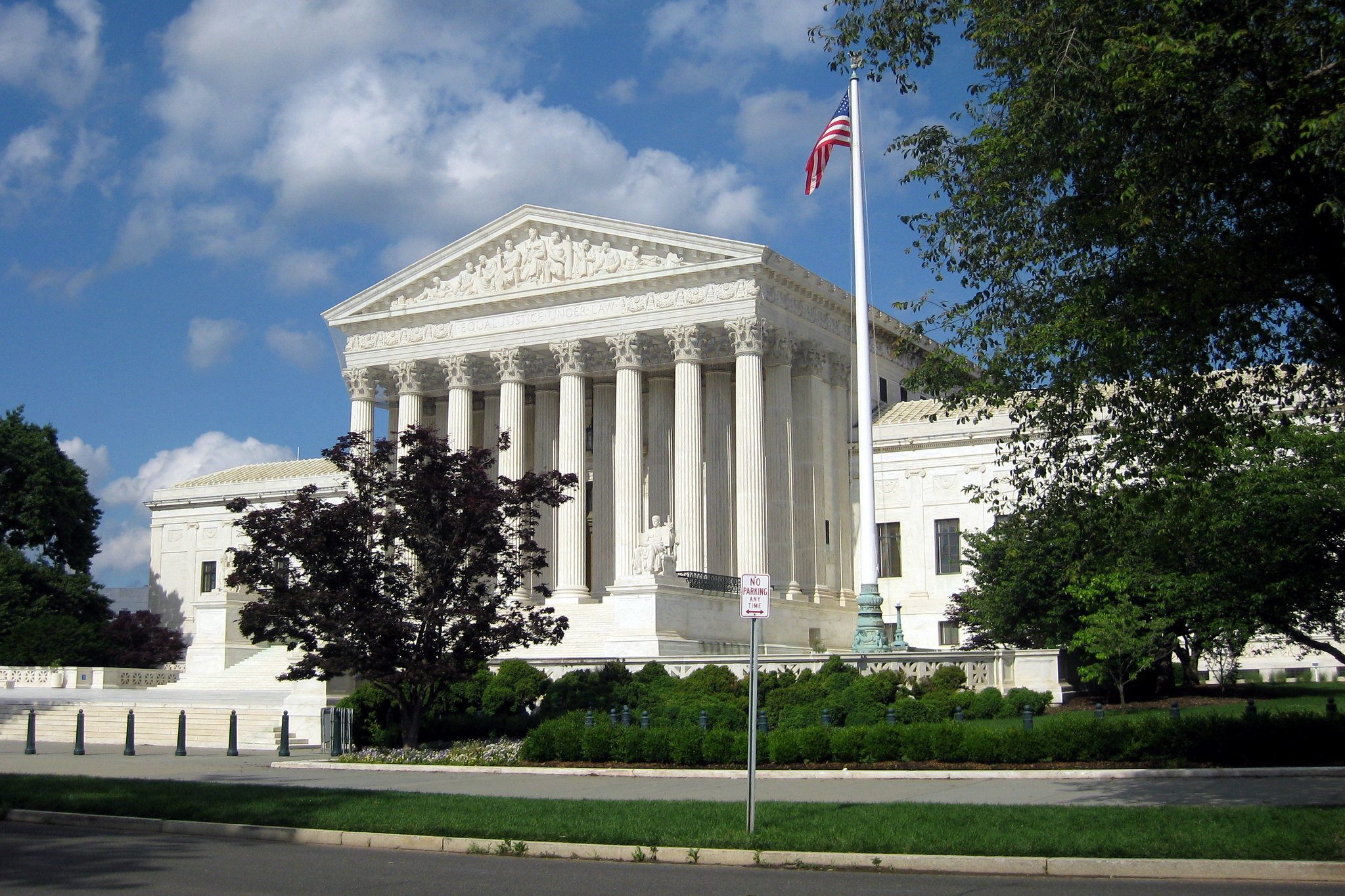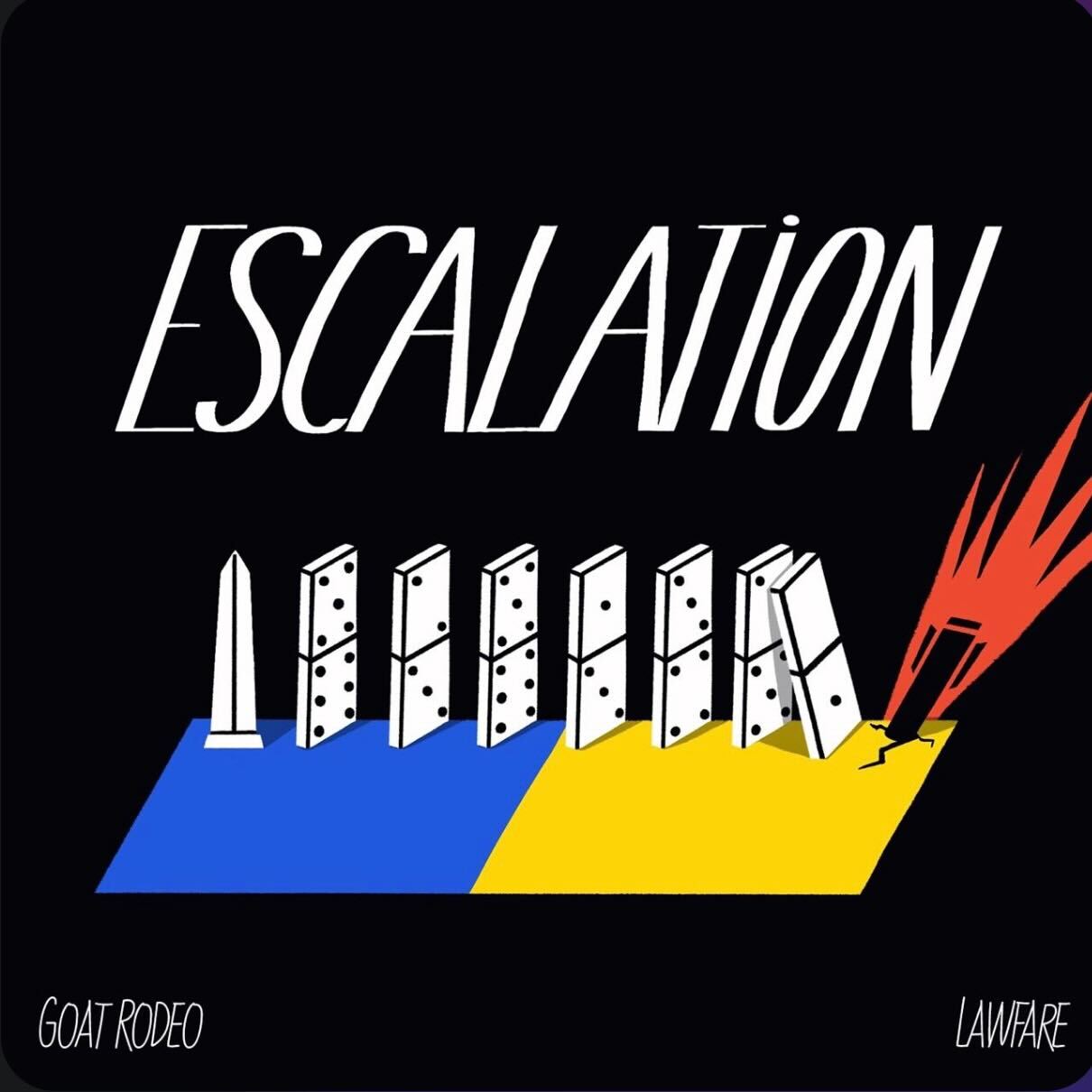Can Macron Be Europe’s Delegate?

Published by The Lawfare Institute
in Cooperation With

Editor’s Note: Political chaos has engulfed France in the past year, raising questions about whether it can continue to play a leading role in Europe. RAND’s Paul Cormarie contends that despite the uncertainties regarding domestic policy, Macron’s defense priorities and military budget are likely to endure.
Daniel Byman
***
France underwent one of its worst political crises in recent memory over the course of 2024. With four prime ministers in just under a year and paralysis in the National Assembly, the government seems to be overwhelmed by a division between the center and the far right and hard left in parliament. President Emmanuel Macron cannot call for new legislative elections until June, after a one-year limit imposed by the constitution has elapsed. But this might not even resolve the crisis because an electoral victory for any of the three blocs seems unlikely. The deadlock could stand until the end of the Macron presidency, in 2027.
This political instability comes at a moment of significant international turbulence for Europe. The transatlantic alliance is experiencing profound change, while European neighbors have challenges of their own; Germany, for example, faces severe domestic troubles and risks starting on the wrong foot with Washington after the upcoming elections. Even worse, as the Russia-Ukraine war seems to have entered its endgame, Europe risks irrelevance in the peace negotiations.
But the same domestic uncertainty permits new opportunities for French leadership in a fragile and decisive transatlantic environment. Ironically, the domestic chaos enables Macron’s leadership because the French constitution and its political system endow the president with such a decisive role. Thus, compared to others, French defense and foreign policies are unlikely to be contested, and Macron’s office might very well become Washington’s “phone number to Europe.”
Washington’s Line to Europe
France’s defense and foreign policy has shifted focus in recent years. It has taken more hawkish positions against Russia—by supplying its enemies, as with Ukraine, and its former allies, including Armenia. This shift could be surprising: Only seven years ago, Macron began his presidency continuing the status quo and hosted Russian President Vladimir Putin at Versailles as his first state visit. Similarly, French armed forces have been undergoing a “reconstruction” since 2017, and France has even surpassed NATO’s 2 percent defense spending goal. It would be wrong to assume that this strategic shift was driven solely by Macron, but this has allowed him to gain some respect among both doves and hawks alike—a comfortable context from which to lead among eastern and western Europeans.
The Munich Security Conference has already proved that the new U.S. administration will be the decisive factor for European security. Here, Macron holds an advantage over other European countries. He is one of the few European leaders still in office with a personal relationship with the U.S. president from his first term (other than Viktor Orbán). Macron’s political brand has included advocacy for Europe’s “strategic autonomy,” which gives him the credibility to lead discussions on the future of European defense—almost to a “told-you-so” degree.
Macron has since led many international initiatives on various key issues ranging from the AI Action Summit, to the Notre Dame reopening, to the European leaders’ emergency meeting. With so much going on, it is almost possible to forget the political instability in Paris right now. And as the negotiations over the war progress, France seems to be a likely interlocutor for European diplomacy. Not only was the U.S. president’s first foreign visit after his 2024 victory to Paris, but both leaders spoke directly to one another before and after the emergency European leaders summit.
The “Hyper-Presidentialist” System
Paradoxically, Macron has taken the initiative internationally because he is paralyzed domestically. While his decision to dissolve parliament turned out to be a flop—and he’s admitted as much—his defense and foreign policy will likely remain uncontested for the rest of his term. His time has been often marked by international crises, but he has also been recognized within France for handling some of them successfully, and that has been a source of strength for his presidency, more so than his domestic reforms.
But Macron is able to do so much thanks to a legal framework that works to his advantage. Unlike presidential and parliamentary democracies elsewhere, the French president enjoys a “reserved domain” in foreign affairs. The head of state presides over the Council of Defense and National Security and other councils related to intelligence and nuclear matters, and sets the strategic direction of France abroad. The prime minister, regardless of party, must implement these directions. The parliament’s only leverage is the budget—which has already been passed for the armed forces until 2030 due to the long-term budgetary laws in defense. Even during cohabitation—those instances in which the president and prime minister represent different parties, which is a real possibility with the likely snap elections to come—prime ministers rarely challenge the president over foreign affairs. Those challenges are generally caused by the relationship between the president and prime minister and are not matters of constitutional ambiguity. It is possible that this time could be different, though, and that a far-right- or hard-left-dominated parliament could lead to a fundamental shift in France’s role in the world, unlike past left-right cohabitations.
The most likely outcome in the near term is a continuation of the politics of the past year, which has insulated foreign and defense policy from the parties’ political jockeying. Even as the country had four different prime ministers, there remained a single minister of the armed forces—Sébastien Lecornu, a Macron ally—who even had the tacit approval of Marine Le Pen’s far right during the premiership of Michel Barnier. If the government instability continues, there is no evidence that this streak would break, given that these are offices on which parties in parliament are willing to compromise if it can allow them to place someone in a position with greater domestic influence. If an electoral upset gives one bloc the balance of power in parliament, they will still likely stick with France’s existing foreign policy because of the strategic environment and their general disinterest in a major shake-up before the next presidential election in 2027.
The Heirs of Gaullism
Despite the French far-right’s sympathy for Russia, it is also unlikely that they will invest much political capital in most foreign policy. In fact, Macron’s presidency has, arguably, not been transformative for French foreign policy. He hasn’t tried to deviate from core principles in part because they fit with the “consensus” in French defense and foreign policy circles. The term “consensus” here is often debated, but, essentially, it is understood that the French public does not tend to challenge the president on foreign affairs so long as the president does not challenge the status quo that has existed since Charles de Gaulle. As a result, French foreign policy is anchored in old concepts, and politicians are not tempted to campaign on reversing them—though they can sometimes use nuances to attack their opponents or change the main tenets of the nation’s foreign policy in incremental steps, like the long French return to NATO’s integrated command.
The French opposition has renewed its attacks on Macron’s foreign policy in recent months, but these critiques are less vehement on issues outside of Europe than hot-button domestic issues, like the retirement age or taxes. In fact, the far right has quietly suggested that it would continue some of Macron’s foreign policy and defense initiatives and otherwise has remained ambiguous about its own proposals for Europe. Some international issues, such as the Israel-Hamas war, led to hostility toward Macron from some members in the hard left, but this has softened since the formation of the new leftist coalition. Moving forward, France’s political left will likely focus on the economy, immigration, and the controversial retirement age law—issues that are more important to the electorate and where the center is more vulnerable. This leaves Macron some breathing room in conducting foreign affairs and claiming some wins for his domestic audience.
The Imaginary Sick Man of Europe
There is a famous saying: In France, we don’t have oil, but we have good ideas. As Europe risks falling into inertia, as demonstrated by the lack of a joint communique at the Paris emergency leaders summit, European leaders will have to demonstrate their relevance rather than wait until it’s too late. But because France’s domestic paralysis will persist, Macron will likely continue to seize leadership through innovative proposals.
This won’t prevent Paris from making the wrong decisions, but at least Macron retains far more latitude than what is commonly believed in trying to chart Europe’s new course. Although there are significant risks for a dramatic reversal if the upcoming 2027 presidential elections yield a far-right or hard-left victory, do not rule out France yet to lead Europe through the upheavals of 2025.





